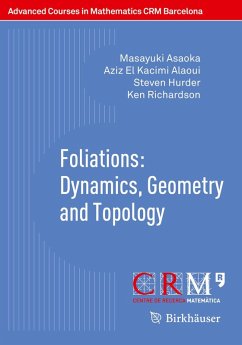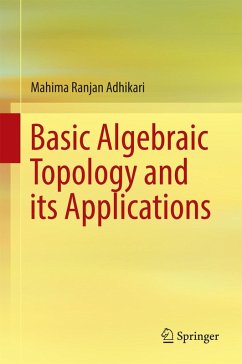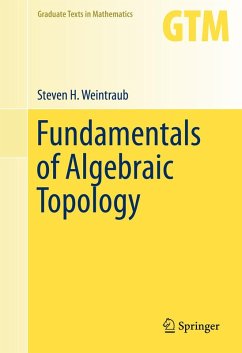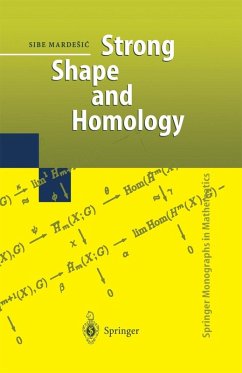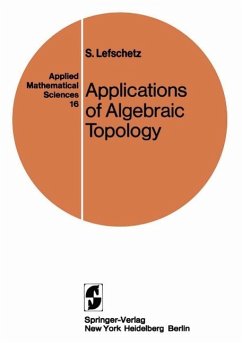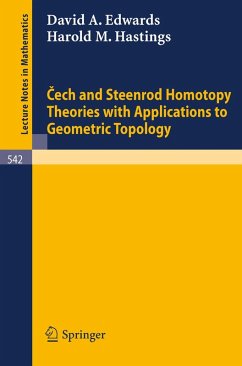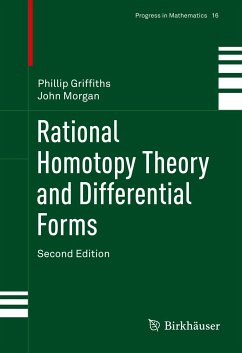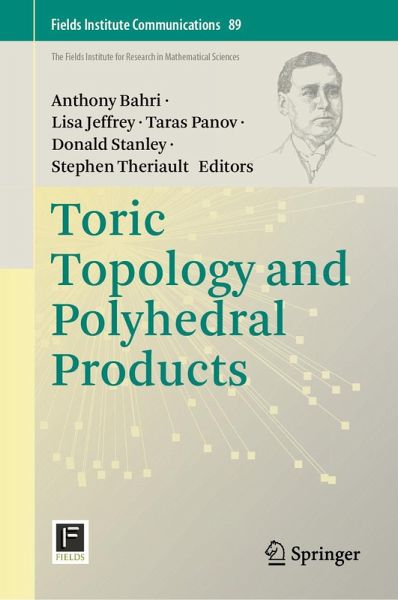
Toric Topology and Polyhedral Products (eBook, PDF)
Versandkostenfrei!
Sofort per Download lieferbar
112,95 €
inkl. MwSt.
Weitere Ausgaben:

PAYBACK Punkte
56 °P sammeln!
This book explores toric topology, polyhedral products and related mathematics from a wide range of perspectives, collectively giving an overview of the potential of the areas while contributing original research to drive the subject forward in interesting new directions. Contributions to this volume were written in connection to the thematic program Toric Topology and Polyhedral Products held at the Fields Institute from January-June 2020. 16 original conributions were inspired or influenced by the program.Toric Topology arose as a subject in its own right about twenty-five years ago. It sits...
This book explores toric topology, polyhedral products and related mathematics from a wide range of perspectives, collectively giving an overview of the potential of the areas while contributing original research to drive the subject forward in interesting new directions. Contributions to this volume were written in connection to the thematic program Toric Topology and Polyhedral Products held at the Fields Institute from January-June 2020. 16 original conributions were inspired or influenced by the program.
Toric Topology arose as a subject in its own right about twenty-five years ago. It sits at the intersection of commutative algebra, topology, combinatorics, algebraic geometry, and symplectic and convex geometry. Polyhedral products are a functorial generalization of a construction that is at the centre of Toric Topology. They are of independent interest and unify several constructions that arise in a diverse range of areas, such as geometric group theory, homotopy theory, algebraic combinatorics and subspace arrangements.
Toric Topology arose as a subject in its own right about twenty-five years ago. It sits at the intersection of commutative algebra, topology, combinatorics, algebraic geometry, and symplectic and convex geometry. Polyhedral products are a functorial generalization of a construction that is at the centre of Toric Topology. They are of independent interest and unify several constructions that arise in a diverse range of areas, such as geometric group theory, homotopy theory, algebraic combinatorics and subspace arrangements.
Dieser Download kann aus rechtlichen Gründen nur mit Rechnungsadresse in A, B, BG, CY, CZ, D, DK, EW, E, FIN, F, GR, HR, H, IRL, I, LT, L, LR, M, NL, PL, P, R, S, SLO, SK ausgeliefert werden.




